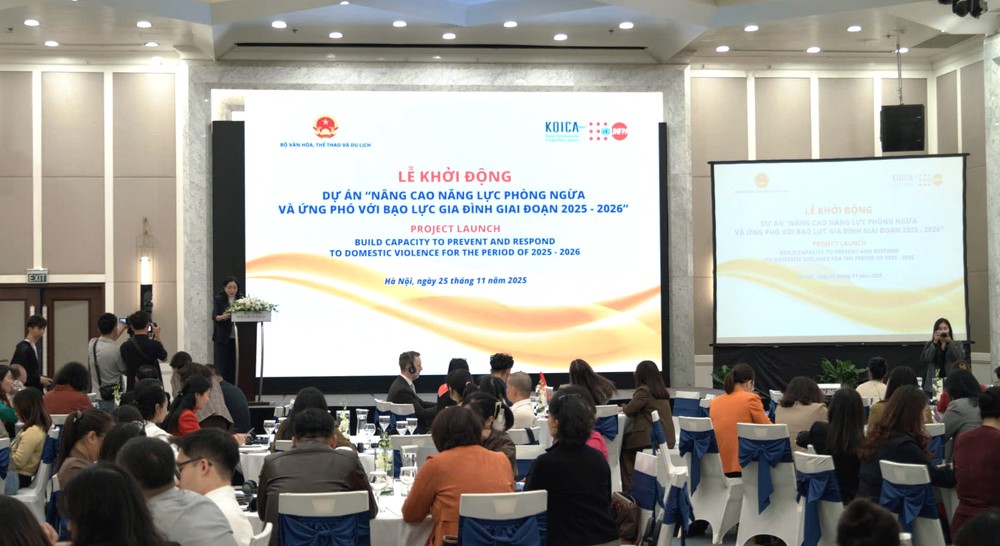To mark the International Day for the Elimination of Violence Against Women (November 25), the Ministry of Culture, Sports and Tourism, in cooperation with the United Nations Population Fund (UNFPA) in Vietnam and the Korea International Cooperation Agency (KOICA), yesterday launched the project “Building Capacity for Domestic Violence Prevention and Response for the 2025–2026 Period,” to be implemented nationwide.
The project aims to strengthen systems for preventing and responding to domestic violence, particularly in the context of digital transformation and increasingly complex forms of technology-facilitated gender-based violence.
Deputy Minister of Culture, Sports and Tourism Trinh Thi Thuy emphasized that the 2022 Law on Domestic Violence Prevention and Control, along with Decree 76/2023/ND-CP, provides an important legal foundation. However, she noted the need to strengthen communication efforts, raise public awareness, and improve the quality of services that support victims.

The project focuses on establishing and operating a national hotline for domestic violence prevention, setting up interdisciplinary coordination mechanisms, and implementing digital communication initiatives that encourage participation from youth, men, and children.
At the same time, the project will provide technical and management support to ensure timely and effective implementation.
Mr. Matt Jackson, Representative of UNFPA in Vietnam, emphasized that effectively addressing domestic violence requires not only strong legislation but also collective societal action, digital capacity, and sustainable investment to ensure that no victim is left behind.
He also cautioned about the growing threat of technology-facilitated gender-based violence, including online harassment, digital surveillance, threats, and the non-consensual sharing of sensitive images, which can deepen the trauma experienced by victims.
The initiative, led by the Department of Grassroots Culture, Family and Library, seeks to bolster the capacity of service providers, improve inter-agency collaboration, and promote safe practices in digital spaces. It also aims to strengthen data collection and monitoring systems, maintaining essential support services for victims of domestic violence. The long-term goal is to institutionalize and scale up evidence-based intervention models that have proven effective.
According to a 2019 national survey, nearly 63 percent of women had experienced at least one form of violence from a husband or partner, 31.6 percent had experienced violence in the previous 12 months, and the economic cost was estimated at 1.81 percent of GDP. More than half of the victims (about 52.5 percent) did not share their experiences with anyone.
The project is expected to contribute to strengthening prevention capacity, promoting early reporting, and protecting victims in both real-world and online settings.
























